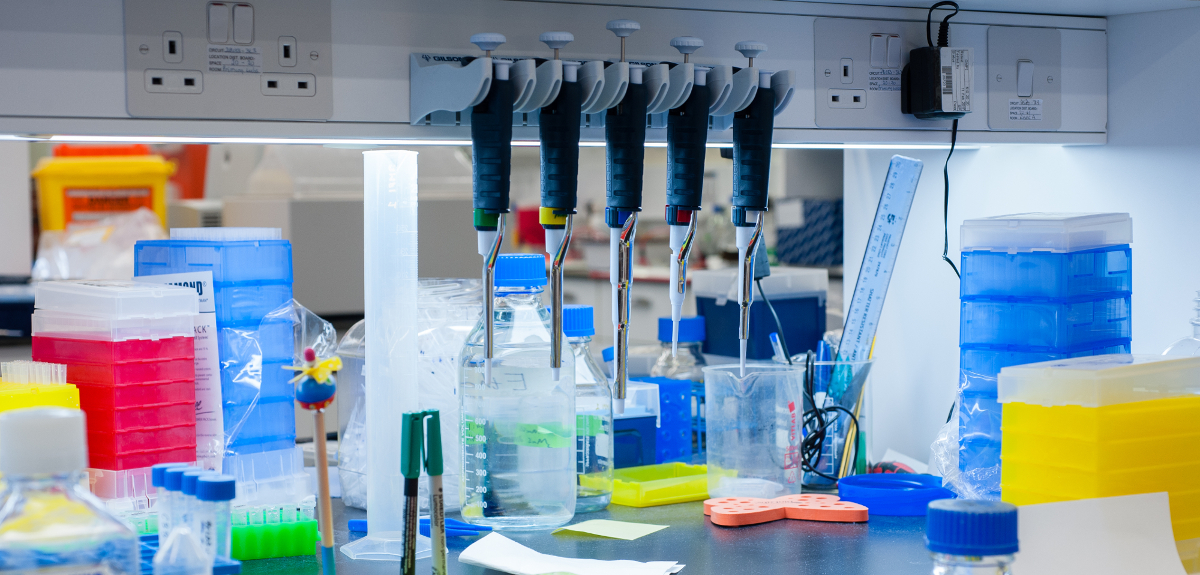The University of Oxford has signed a collaborative agreement with biotechnology firm SomaLogic.
The agreement will see the partners undertake a number of collaborative projects that will employ SomaLogic's proprietary SOMAmer® reagents and SOMAscan® assay technologies to discover and characterize protein biomarkers for a range of clinical diseases and conditions.
SomaLogic’s investment in the Oxford University cluster is an excellent example of our unique life sciences offering – world-leading academic researchers working together with the NHS and industry to develop new and innovative tools for better healthcare.
George Freeman, UK Life Sciences minister
In order to maximize the collaborative nature of these projects and accelerate the translation of discoveries into clinical testing, the agreement also includes the build-out of a SOMAscan assay service laboratory at Oxford under the direction of SomaLogic personnel.
We are excited to closely join our proteomics technology and knowledge with the biomedical expertise of Oxford's world-class researchers.
Byron Hewett, CEO of SomaLogic
'We welcome SomaLogic to Oxford, one of Europe's largest centres for biotechnology research," said Simon Lovestone, Professor of Translational Neuroscience. 'This agreement is a model for how we can bring together the best of industry, academia and the National Health Service to improve healthcare outcomes for patients in the UK and beyond. SomaLogic will benefit from access to Oxford's world-leading research to develop and refine its products, while we will benefit from access to technology that can enhance what we do.'
'We are excited to closely join our proteomics technology and knowledge with the biomedical expertise of Oxford's world-class researchers,' said Byron Hewett, CEO of SomaLogic. 'The massive data that will be generated from this agreement should rapidly lead to new applications of our technologies to the clinical diagnosis and management for many diseases and conditions.'
This agreement is a model for how we can bring together the best of industry, academia and the National Health Service to improve healthcare outcomes for patients in the UK and beyond.
Simon Lovestone, Professor of Translational Neuroscience, University of Oxford.
Compared to other current proteomic technologies, SomaLogic's platform gives researchers unprecedented power for protein biomarker discovery, diagnostics development, and pharmaceutical discovery and development. SOMAmer reagents, which are at the center of SomaLogic's proteomics platform, are a new class of superior protein-binding reagents that combine the best properties of both monoclonal antibodies and traditional aptamers. The SOMAscan assay, which incorporates 1,310 different SOMAmer reagents, efficiently, accurately, and rapidly measures proteins across a wide range of concentrations in small volumes of multiple biological sample types, accelerating the discovery of biomarkers across a wide range of diseases and conditions.
Oxford is well placed to exploit the wealth of information generated by the SOMAscan technology. The agreement comes as Oxford completes work on its Big Data Institute, which will focus on the analysis of large data sets in an effort to improve detection, treatment and prevention of a range of conditions, adding to work in the existing Target Discovery Institute, which looks for potential new targets for treatments. Overall, the University's medical research ranges from initial lab work to clinical application in hospitals and health centres, with centres of excellence investigating a range of conditions from Cancer and Alzheimer's to rare tropical diseases. Much of that research can benefit from further proteomics support.
Life Sciences Minister George Freeman MP said: 'SomaLogic’s investment in the Oxford University cluster is an excellent example of our unique life sciences offering – world-leading academic researchers working together with the NHS and industry to develop new and innovative tools for better healthcare.'
